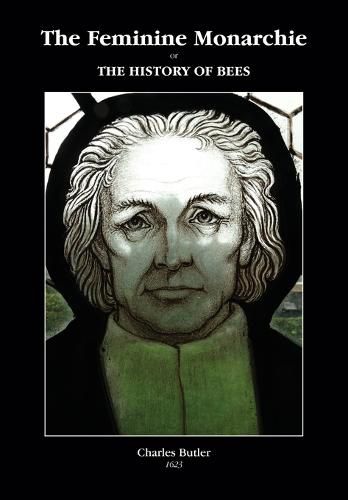Readings Newsletter
Become a Readings Member to make your shopping experience even easier.
Sign in or sign up for free!
You’re not far away from qualifying for FREE standard shipping within Australia
You’ve qualified for FREE standard shipping within Australia
The cart is loading…






This title is printed to order. This book may have been self-published. If so, we cannot guarantee the quality of the content. In the main most books will have gone through the editing process however some may not. We therefore suggest that you be aware of this before ordering this book. If in doubt check either the author or publisher’s details as we are unable to accept any returns unless they are faulty. Please contact us if you have any questions.
Charles Butler
1623
The Feminine Monarchie is an early and remarkable work of English natural
history, first published in 1609, and written by a scholarly country parson of
wide ranging interests. Like the later Gilbert White of Selborne, a distant relation,
Charles Butler had a deep curiosity about the natural world and recorded his
discoveries methodically, in keeping with the growing scientific mood of the
seventeenth century.
Butler was the author of several books on subjects as diverse as music,
grammar, logic, and church law. He was also a noted beekeeper and The
Feminine Monarchie is the classic English beekeeping text, earning Butler the
title ‘father of English bee-keeping’. The book explores the world of the honey
bee with a keen intelligence, and makes implicit reference to Elizabeth I’s long
reign as England’s female monarch.
This is the first new edition of The Feminine Monarchie to be published
for over three hundred years, and contains a new introduction, as well as
annotations and a glossary of the more obscure words used by Butler. The
spelling and grammar have been modernised throughout. This edition has been
prepared from the 1623 edition, which includes Butler’s famous ‘Bees Madrigal’.
John Owen is vicar of two rural parishes in Hampshire, in the South Downs
National Park, thirty miles from Butler’s parish of Wootton St Lawrence in the
same county. He keeps bees, poultry and goats and is rural advisor in the
Diocese of Portsmouth.
$9.00 standard shipping within Australia
FREE standard shipping within Australia for orders over $100.00
Express & International shipping calculated at checkout
This title is printed to order. This book may have been self-published. If so, we cannot guarantee the quality of the content. In the main most books will have gone through the editing process however some may not. We therefore suggest that you be aware of this before ordering this book. If in doubt check either the author or publisher’s details as we are unable to accept any returns unless they are faulty. Please contact us if you have any questions.
Charles Butler
1623
The Feminine Monarchie is an early and remarkable work of English natural
history, first published in 1609, and written by a scholarly country parson of
wide ranging interests. Like the later Gilbert White of Selborne, a distant relation,
Charles Butler had a deep curiosity about the natural world and recorded his
discoveries methodically, in keeping with the growing scientific mood of the
seventeenth century.
Butler was the author of several books on subjects as diverse as music,
grammar, logic, and church law. He was also a noted beekeeper and The
Feminine Monarchie is the classic English beekeeping text, earning Butler the
title ‘father of English bee-keeping’. The book explores the world of the honey
bee with a keen intelligence, and makes implicit reference to Elizabeth I’s long
reign as England’s female monarch.
This is the first new edition of The Feminine Monarchie to be published
for over three hundred years, and contains a new introduction, as well as
annotations and a glossary of the more obscure words used by Butler. The
spelling and grammar have been modernised throughout. This edition has been
prepared from the 1623 edition, which includes Butler’s famous ‘Bees Madrigal’.
John Owen is vicar of two rural parishes in Hampshire, in the South Downs
National Park, thirty miles from Butler’s parish of Wootton St Lawrence in the
same county. He keeps bees, poultry and goats and is rural advisor in the
Diocese of Portsmouth.